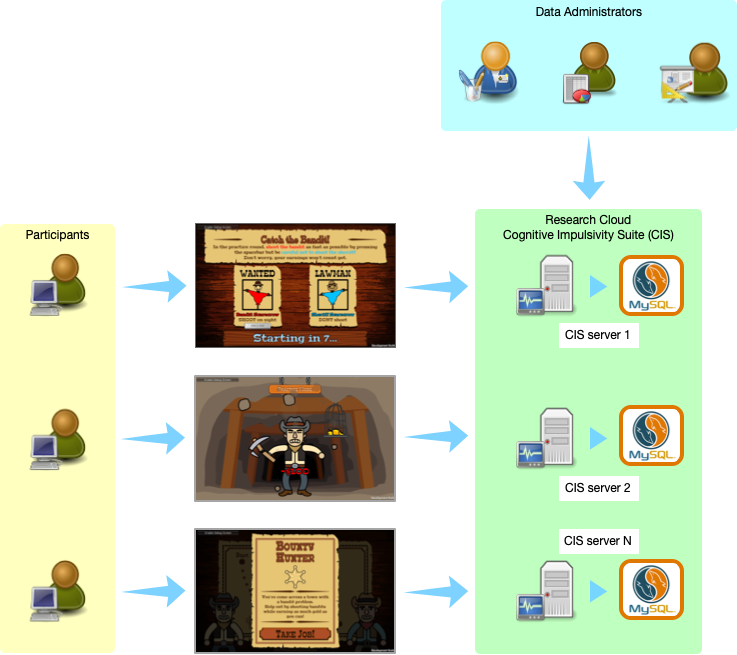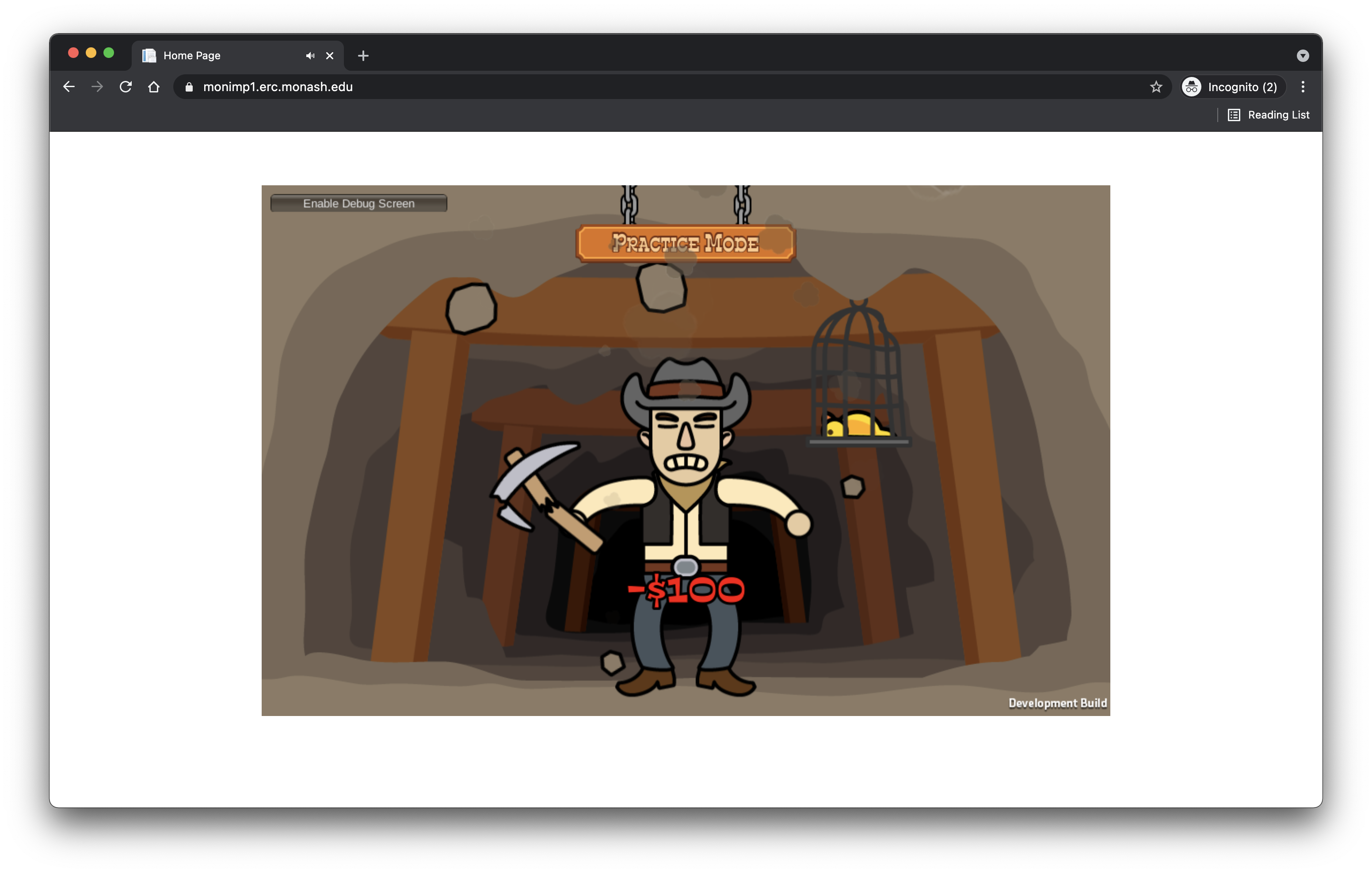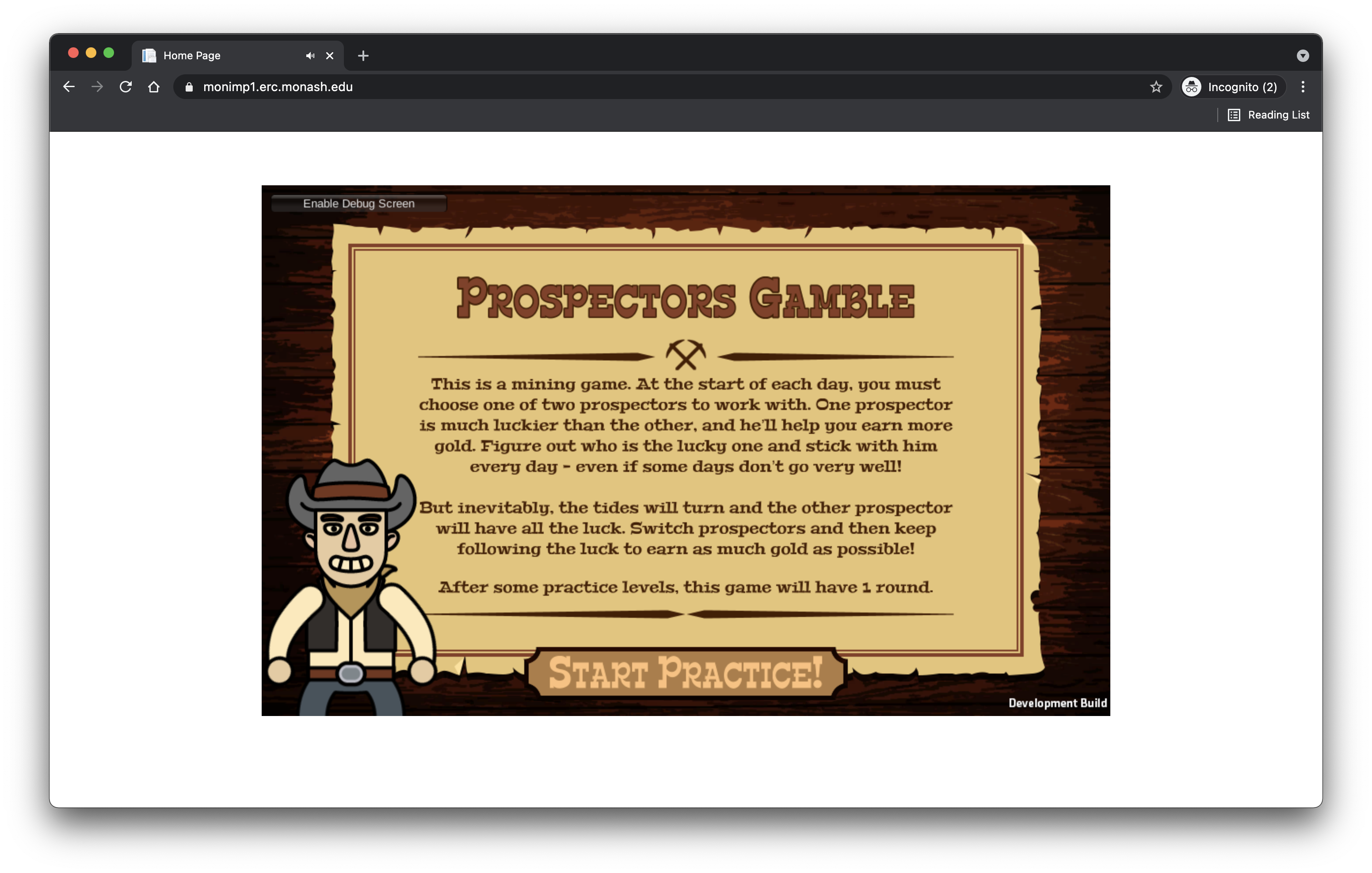Professor Antonio Verdejo Garcia and colleagues from the Verdejo-Garcia Laboratory at Turner Institute for Brain and Mental Health, engaged a local video game developer – TorusGames, to write computer games that are used to better understand impulsivity (a common symptom of substance addictions, obesity and eating disorders). We helped migrate this application to the Research Cloud, where barriers to infrastructure scaling, reuse and appropriate data governance have been removed. Back in 2018 the lab asked for advice on publishing apps online. It turned out the applications are a battery of interactive web applications that are designed to measure cognitive impulsivity of its users. This project was supported by an ARC Linkage Project (LP150100770), which aimed to study and measure the cognitive skills that can produce (or avoid) impulsive human behaviour.
The project engaged a local 3rd party developer (Torus Games) to develop the games (ahem, cognitive applications) to a pre-production level using Google’s Firebase platform (enables developers to develop iOS, Android and Web apps easier). Our job was to help the lab to migrate the application into the Nectar Research Cloud at Monash (R@CMon), which also meant mapping a pathway away from Firebase. The project and its data custodians have full governance on the data captured by the applications as part of their data collection activities.
The resulting application suite, the “Cognitive Impulsivity Suite (CIS)”, is a series of connected services. The web-app itself is a Unity-based WebGL build with a RESTful API using an ASP.NET backend. The app stores the user observations (generated “measures”) from the “trials” into a relational database backend. A Windows-based server is required to host the .NET-based application using the Internet Information Services (IIS) web server. R@CMon provided the required cloud resources and web configuration (.Net, IIS) to migrate the “CIS” application suite from Google Firebase. A high level pipeline diagram of CIS deployment is shown below.

3 years on, the lab is currently conducting 5 major projects using the “CIS” infrastructure on the Research Cloud. The largest of these studies assess impulsivity in more than 1000 US and Australian help-seeking and anonymous participants with drug, alcohol and gambling problems. There are 2 articles 1 2 that have been published recently from various impulsivity studies. These research outcomes have utilised the full capabilities of the “Cognitive Impulsivity Suite (CIS)” on the Research Cloud.
The research cloud has enabled us to reliably collect and store cognitive impulsivity data for thousands of participants around the world. We have been able to run several instances of the CIS task, related to different projects at one time. This has been fundamental to the success of each research project and the ability to efficiently separate participant data. We are grateful for the ongoing support we have received from the research cloud team. They have quickly responded to our needs and have offered valued solutions and technical support to enable each of our projects to run smoothly.
Alexandra Anderson, Addiction and Impulsivity Research (AIR) Lab, Turner Institute for Brain and Mental Health, Monash University.
This article can also be found, published created commons here 3.
- Verdejo-Garcia A, Tiego J, Kakoschke N, Moskovsky N, Voigt K, Anderson A, Koutoulogenis J, Lubman DI, Belgrove MA. A unified online test battery for cognitive impulsivity reveals relationships with real-world impulsive behaviours. Nat Hum Behav. 2021. https://doi.org/10.1038/s41562-021-01127-3
- Voigt K, Giddens E, Stark R, Frisch E, Moskovsky N, Kakoschke N, Stout JC, Bellgrove MA, Andrews ZB, Verdejo-Garcia A. The Hunger Games: Homeostatic State-Dependent Fluctuations in Disinhibition Measured with a Novel Gamified Test Battery. Nutrients. 2021; 13(6):2001. https://doi.org/10.3390/nu13062001
- Revote, Jerico; Aung, Swe Win; Quenette, Steve; Anderson, Alexandra; Verdejo-Garcia, Antonio (2021): Triple Mechanism Cognitive Impulsivity Battery. Monash University. Online resource. https://doi.org/10.26180/15121956.v2


